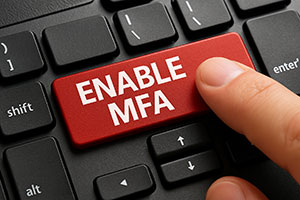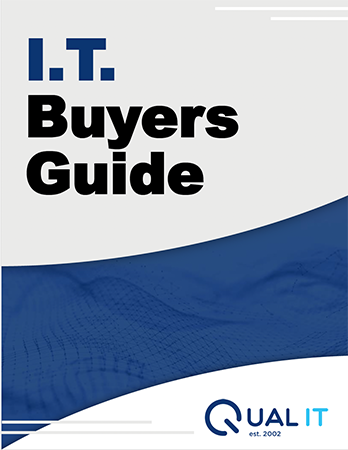 You wouldn’t leave client files on your desk overnight. You wouldn’t host a client meeting in an unsecured location. So why operate your financial advisory firm without multifactor authentication (MFA)?
You wouldn’t leave client files on your desk overnight. You wouldn’t host a client meeting in an unsecured location. So why operate your financial advisory firm without multifactor authentication (MFA)?
MFA acts as an essential second layer of protection for financial advisors. It doesn’t just protect your data—it protects your reputation, your compliance posture, and the trust your clients place in you every day.
With the growing threat of credential phishing and password breaches, financial firms in Salt Lake City are becoming prime targets for cybercriminals. A single compromised password can grant access to CRM systems, financial planning tools, and confidential client records.
That’s why MFA is no longer a tech suggestion—it’s an industry necessity.
One Simple Layer That Makes a Massive Difference
Think of your password like locking your office at night. Enabling MFA is like setting the building alarm system. If one layer fails, the other is there to stop intruders in their tracks.
For financial advisors managing high-net-worth data and navigating regulatory oversight from FINRA or the SEC, that backup layer is critical. MFA prevents unauthorized access even if a password is stolen, phished, or guessed.
Forms of MFA include:
- One-time codes via text message
- Push notifications from authentication apps
- Biometrics like fingerprint or face scan
- Security questions or backup email verification
The process usually takes just seconds—and could save you thousands in breach remediation, compliance penalties, and lost client trust.
Real Scenarios Where MFA Protects Your Firm
Picture this: An employee at your firm clicks on a phishing email, unintentionally exposing their login credentials. Without MFA, a bad actor could access your advisory dashboard, portfolio tools, or secure file storage in seconds.
With MFA? That hacker hits a wall.
Microsoft reports that MFA blocks 99.2% of automated account breaches. And when paired with other cybersecurity best practices, it creates a digital environment where your clients’ financial data is exponentially safer.
Here’s what MFA protects in a financial advisory firm:
- Client portfolio access platforms
- Email systems containing sensitive communication
- Financial planning applications like eMoney or RightCapital
- Cloud-based file sharing and compliance portals
Where and How Salt Lake City Financial Advisors Should Use MFA
To keep your firm secure, enable MFA on:
- Banking platforms and investment management portals
- Office 365 or G-Suite email and document tools
- Client CRM software
- Any platform housing personally identifiable or financial data
Most platforms support MFA natively. All it takes is a few minutes to turn it on. Better yet, an IT provider like Qual IT can handle the rollout firm-wide—ensuring every team member’s access is secure and compliant.
Want to Lock Down Your Firm Before It’s Too Late?
In financial services, one mistake can lead to an audit, a headline, or a lost client. MFA is your first line of defense—and one of the fastest, easiest ways to protect what matters most.
Click here to schedule your free Network & Cybersecurity Assessment with Qual IT.
Let’s get your MFA strategy implemented before a breach forces your hand.



